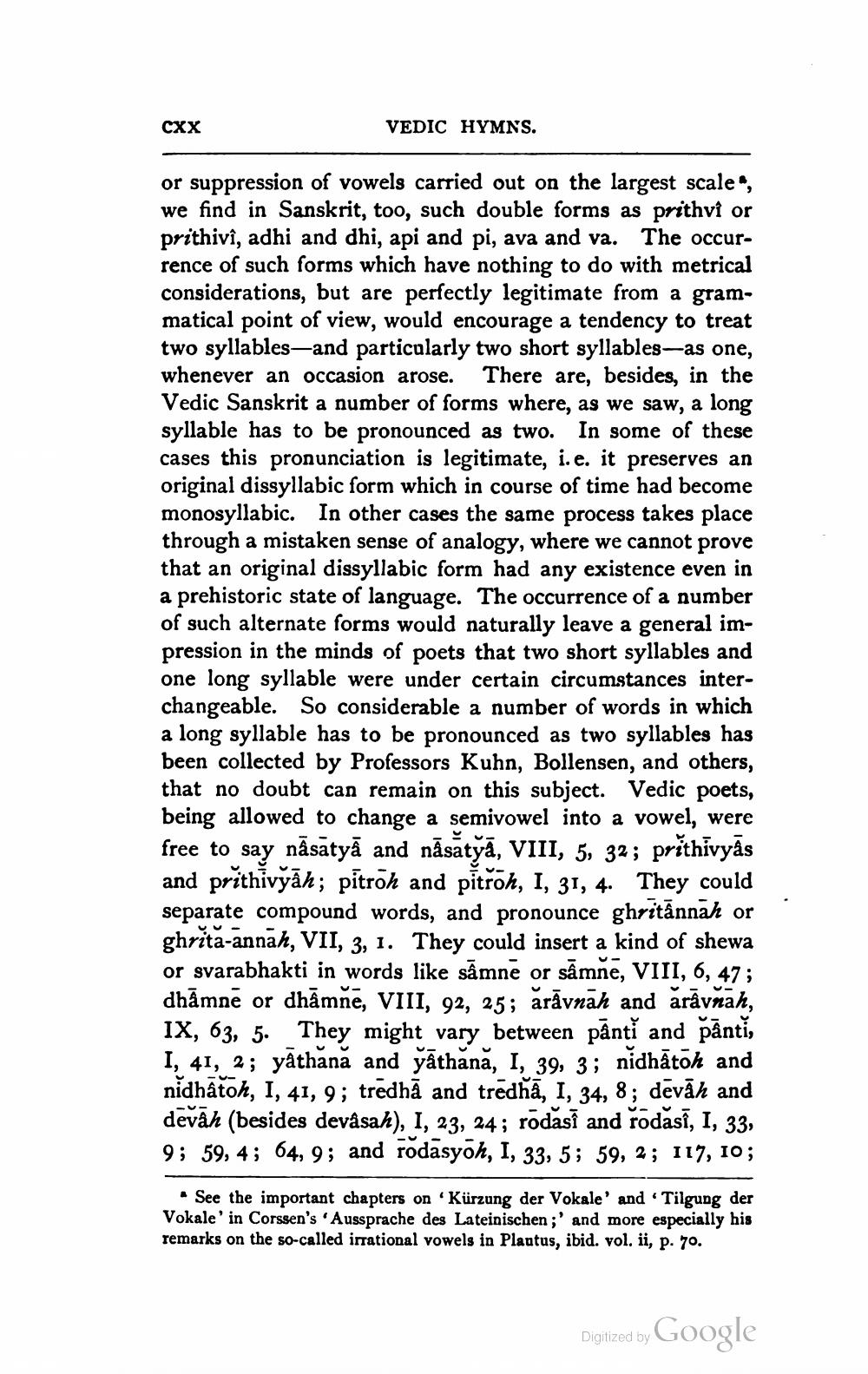________________
CXX
VEDIC HYMNS.
or suppression of vowels carried out on the largest scale*, we find in Sanskrit, too, such double forms as prithvi or prithivî, adhi and dhi, api and pi, ava and va. The occurrence of such forms which have nothing to do with metrical considerations, but are perfectly legitimate from a grammatical point of view, would encourage a tendency to treat two syllables-and particularly two short syllables-as one, whenever an occasion arose. There are, besides, in the Vedic Sanskrit a number of forms where, as we saw, a long syllable has to be pronounced as two. In some of these cases this pronunciation is legitimate, i. e. it preserves an original dissyllabic form which in course of time had become monosyllabic. In other cases the same process takes place through a mistaken sense of analogy, where we cannot prove that an original dissyllabic form had any existence even in a prehistoric state of language. The occurrence of a number of such alternate forms would naturally leave a general impression in the minds of poets that two short syllables and one long syllable were under certain circumstances interchangeable. So considerable a number of words in which a long syllable has to be pronounced as two syllables has been collected by Professors Kuhn, Bollensen, and others, that no doubt can remain on this subject. Vedic poets, being allowed to change a semivowel into a vowel, were free to say nâsatyā and nāsǎtyā, VIII, 5, 32; prithivyās and prithivyah; pitroh and pitroh, I, 31, 4. They could separate compound words, and pronounce ghritannah or ghrita-annah, VII, 3, 1. They could insert a kind of shewa or svarabhakti in words like samne or sâmne, VIII, 6, 47; dhamne or dhamnē, VIII, 92, 25; aravnah and arâvnah, IX, 63, 5. They might vary between pânti and pânti, I, 41, 2; yathana and yathana, I, 39, 3; nidhatok and nidhâtoh, I, 41, 9; tredha and tredha, I, 34, 8; devāk and devah (besides devâsah), I, 23, 24; rodasî and rodasî, I, 33, 9; 59, 4; 64, 9; and rodasyok, I, 33, 5; 59, 2; 117, 10;
See the important chapters on 'Kürzung der Vokale' and 'Tilgung der Vokale' in Corssen's 'Aussprache des Lateinischen;' and more especially his remarks on the so-called irrational vowels in Plautus, ibid. vol. ii, p. 70.
Digitized by Google




